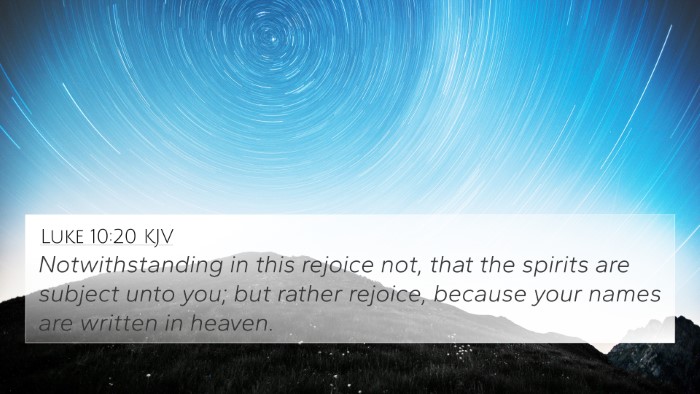Understanding Proverbs 22:1
Proverbs 22:1 states: "A good name is to be chosen rather than great riches, and favor is better than silver or gold." This verse speaks volumes about the value of a person's reputation and the importance of character over material wealth. Below, we explore the meaning of this verse through insights from various public domain commentaries.
Meaning and Insights
Matthew Henry's Commentary:
Matthew Henry emphasizes that a good name is a treasure that cannot be bought. It represents a person's character and integrity, which are more valuable than material wealth. He underscores that while riches can bring temporary advantages, a good reputation endures and reflects a person's true nature. A reputable individual earns the favor of others and enjoys respect in their community.
Albert Barnes' Notes:
Barnes points out that the term "good name" refers to a character that is well regarded in the eyes of society. He notes that having a good reputation often leads to favor with people and can be a source of security that wealth cannot guarantee. Furthermore, he highlights that human favor, while beneficial, is transient; thus, striving for a good name should be prioritized.
Adam Clarke's Commentary:
Clarke discusses the significance of a "good name" as it relates to wisdom and virtue. He connects this verse to the idea that the ethical and moral conduct of an individual is paramount. Clarke suggests that acquiring wealth should not come at the expense of one's integrity, as the essence of who a person is outlasts any material possessions.
Bible Cross References
Understanding Proverbs 22:1 is enriched by cross-referencing other related scriptures. Here are some relevant Biblical texts that align with the theme of valuing one's reputation and character:
- Ecclesiastes 7:1: "A good name is better than precious ointment; and the day of death than the day of one's birth." This verse reiterates the importance of a good reputation over material gain.
- Proverbs 3:4: "So you will find favor and good success in the sight of God and man." This highlights the connections between moral conduct and public favor.
- Proverbs 10:7: "The memory of the righteous is a blessing, but the name of the wicked will rot." This verse contrasts the lasting impact of a good name versus a bad one.
- 1 Samuel 2:30: "Those who honor me I will honor, and those who despise me shall be lightly esteemed." This emphasizes God's valuation of reputation and integrity.
- Philippians 2:15: "That you may be blameless and innocent, children of God without blemish in the midst of a crooked and twisted generation, among whom you shine as lights in the world." This draws parallels to maintaining a good name in a challenging world.
- 1 Timothy 3:2: "Therefore an overseer must be above reproach, the husband of one wife, sober-minded, self-controlled, respectable, hospitable, able to teach." This emphasizes the necessity of maintaining a good reputation in leadership roles.
- Titus 2:7: "Show yourself in all respects to be a model of good works, and in your teaching show integrity, dignity." This reflects the call to embody character that influences others positively.
Inter-Biblical Dialogue
The connections between these verses form a broader narrative within Scripture about how one's reputation is tied to values such as integrity, character, and ethical conduct. They illustrate the importance of maintaining a good name throughout the Old and New Testaments. This reflects a thematic dialogue that shows how biblical wisdom across various books emphasizes the lasting value of personal integrity and reputation.
Conclusion
In summary, Proverbs 22:1 teaches us that while wealth may provide temporary enjoyment, the value of a good name far surpasses it. This message is echoed throughout Scripture, establishing a strong foundation for character and integrity as paramount virtues in the Christian faith. By studying the connections and thematic references to this verse, we can gain deeper insights into maintaining a good name in our spiritual and personal lives.
For further study, various tools for Bible cross-referencing, including concordances and reference guides, can enhance one’s understanding of how scripture relates to scripture. Engaging in comparative Bible verse analysis can illuminate the depth and richness of biblical teachings on the nature of a good name.








